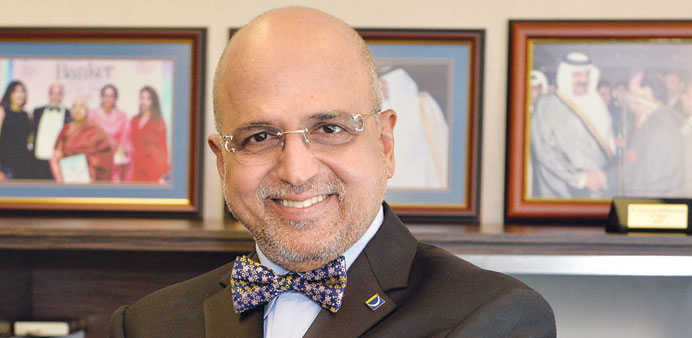By Dr R Seetharaman
The World Bank IMF Annual Meeting was held at Lima, Peru over the weekend and I witnessed active participation in areas relating to global economic outlook, monetary and fiscal policies, sustainable development, youth and financial inclusion and financial services sector.
The global economic growth was revised down to 3.1% and 3.6% for 2015 and 2016 respectively. Advanced economies are expected to grow by 2% in 2015 and 2.2% in 2016. Emerging economies are expected to grow by 4% in 2015 and 4.5% in 2016. The decline in growth this year reflects a further slowdown in emerging markets, partially offset by a modest pickup in activity in advanced economies — particularly in the euro area.
The decline in growth in emerging markets and developing economies is on account of weaker growth in oil exporters; a slowdown in China, as the pattern of growth becomes less reliant on investment; and a weaker outlook for exporters of other commodities, including in Latin America, following price declines.
The Middle East and North Africa region is expected to grow by 2.3% and 2.8% in 2015 and 2016 respectively. Commodity-exporting countries with worsening terms of trade and limited buffers may need to reassess their fiscal policies in the face of lower commodity-related revenue.
Financial stability in advanced economies has improved, but risks have moved towards emerging economies. Emerging and developing economies are experiencing their fifth consecutive year of slowing economic growth which is one of the key factors behind the increased risks to global financial stability. In many countries, large swings in commodity prices have resulted in large fluctuations in public expenditures and, in turn, exacerbated economic volatility.
With the latest sharp fall in commodity prices, most countries will have to cut expenditures, in some cases by large amounts. However, those with fiscal buffers will be able to apply the brakes at a more gradual pace and cushion the impact on the economy.
The world economy risks another crash unless they continue to support growth with low interest rates. There were risks of “spillovers” into volatile financial markets from central banks in the US and the UK increasing the cost of credit. Japan and the eurozone need to maintain their plans to stimulate their ailing economies with an increase in quantitative easing. The global financial regulatory reform agenda should be completed and implemented in a timely and consistent manner and further developed, including through monitoring and addressing issues raised by financial activities outside the banking system.
During the IMF meeting, the European Investment Bank (EIB) and the International Monetary Fund signed a memorandum of understanding (MOU) that enables the two organisations to enhance their close cooperation in advancing the Sustainable Development Goals (SDGs) and in supporting capacity development and institution building to address global economic challenges in the context of the post-2015 development agenda. According to the IMF, 6.5% of global gross domestic product currently goes to energy subsidies. It estimates that the world’s governments and private institutions should be investing $5 to $7tn annually on infrastructure improvements, clean energy, sanitation and agriculture from now in order to meet the UN’s 2030 goals for reducing the pollution that causes climate change.
The youth make up about 40% of the world’s unemployed and in the Middle East and North Africa, one-third of young people cannot find work. There is apparent mismatch between the skills employers and businesses are looking for and what young people are learning at schools, universities, and vocational training centres. Access to technology and the Internet and to networking and learning tools, as well as having globally connected institutions that bring best practices are possible solutions to the challenges of youth unemployment. The youth unemployment gap can be bridged through education inclusion.
The IMF has not only highlighted the current challenges to global growth but also laid emphasis on areas such as sustainable development, youth unemployment and education, thereby encouraging inclusive growth.
♦ Dr R Seetharaman is Group CEO of Doha Bank. The views expressed are his own.

